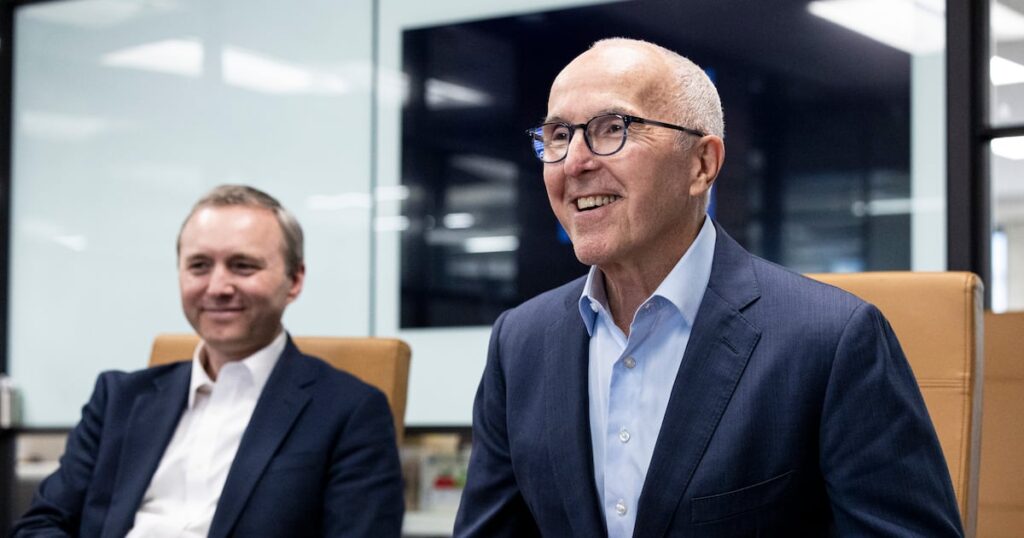On Friday morning, the Trump administration extended the deadline for China-based ByteDance to sell TikTok. For another 75 days, the video-sharing app will remain as is for its 170 million United States users — unless the extension is challenged.
President Donald Trump announced the extension on social media, reasoning that more time is needed to make a deal between Bytedance and an American buyer. “My Administration has been working very hard on a Deal to SAVE TIKTOK, and we have made tremendous progress,” he said. “We do not want TikTok to ‘go dark.’ We look forward to working with TikTok and China to close the Deal.”
This is the second time Trump has postponed the app’s sale or ban in the U.S. Last year, Congress signed a law that said ByteDance has to sell TikTok, or the app would be shut down. The Supreme Court upheld the law in December, making Trump’s executive orders to keep TikTok running legally questionable.
Several American investors and businesses have put forward bids to buy the app, including the billionaire former Dodgers owner Frank McCourt, founder of the nonprofit Project Liberty.
In a sit-down interview on Friday with Deseret News, McCourt and Tomicah Tillemann, Project Liberty’s president, said despite the news, they continue to believe their bid is the only one that will comply with the law.
McCourt was in Salt Lake City to attend the signing of several bills that aim to protect children online, including one that gives users the right to own, control and manage their data, ensuring that they can permanently delete their own information. This right, which McCourt called a “human right,” is the focus of Project Liberty, a nonprofit that aims to create a new information superhighway that is “healthier” and “safer” for its users.
McCourt thinks his bid is best
The bipartisan effort to pry TikTok from ByteDance stemmed from national security concerns over the app potentially sharing user-collected data with the Chinese government.
McCourt has put together a bid to buy TikTok through Project Liberty, which they’re calling the “People’s Bid.” Under their ownership, TikTok would give users more freedom to choose what content they see and what they do with their personal data.
McCourt said Project Liberty’s mission is to empower its users rather than exploit them. Founded in 2019, the initiative aims to challenge the power currently held by Big Tech.
“This isn’t a tech issue; this is actually a human rights issue,” McCourt told the Deseret News. “This is an issue about choice. This is an issue about autonomy.”
The internet should be a place for users to “create and innovate and have a chance to build things of value, as opposed to the world that exists now, which is that there are a few companies that own it all — and worse, they own us,” he said.
In the U.S., adults use TikTok more than any other social media app, averaging a little over 53 minutes daily, and more than half of users are between the ages of 18 and 34. The platform made $10 billion in revenue in just the U.S. last year.
Tillemann related the world’s acceptance of algorithmic instant gratification addiction to the 20th-century obsession with cigarettes.
Back then, “Everyone had gotten accustomed to that reality, even though it was really, really bad for people, but within a relatively short period of time, that changed, and you saw greater awareness,” he said, adding that the change was prompted by growing public awareness, policymaking and regulation.
“People were able to move beyond addictions and decide they wanted a much better, healthier ecosystem in which they were going to raise their kids and live a life,” he said. “And I think there are some interesting analogs there to the dynamics that we see about social media.”
McCourt believes the cultural shift on attitudes about social media has already begun, but like cigarettes, the current status quo will eventually become a full-fledged “taboo.” Apps like TikTok that are “surveilling us and grabbing our attention are going to be viewed not just as unlawful through public policy but culturally unacceptable,” he said.
Utah law is protecting user’s ‘digital DNA’
Before McCourt and Tillemann sat down with the Deseret News, they spent Friday morning at the state Capitol attending Gov. Spencer Cox’s ceremonial signing of online safety bills, which Project Liberty aided Utah lawmakers in creating.
McCourt celebrated Utah as the first state to hold big tech accountable through legislative action, including the Digital Choice Act, which will allow Utah app users the right to own, control and manage what he calls our “Digital DNA.”
Both McCourt and Tillemann emphasized that all eyes are on Utah to see how tech companies will react to the new laws: comply or litigate.
“In the last few weeks, since this law passed the Senate, we’ve had conversations not only with lawmakers all over the United States, but with policymakers all over the world,” Tillemann said.
“They are very, very focused on what’s happened in Utah. They recognize that this is a big deal, and they are looking for models that will help them solve a challenge that’s facing every open society on the planet.”
This article was originally published by a www.deseret.com . Read the Original article here. .

